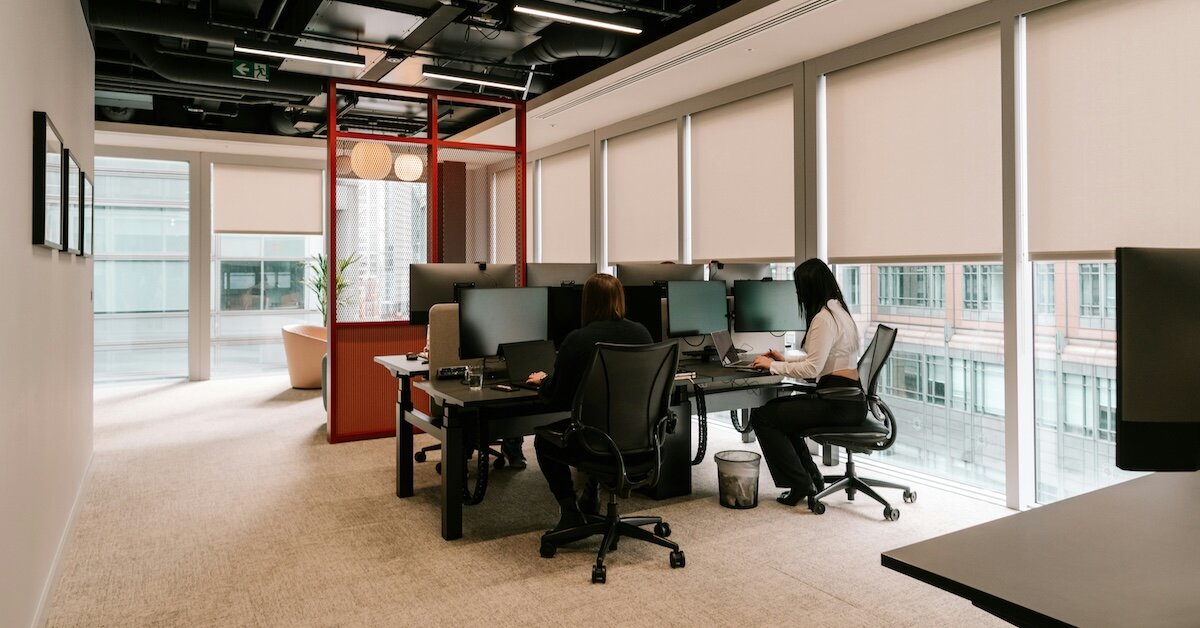10 Tips for Renting Your First Office Space


Renting an office for the first time can be both exciting for any business owner. It's a sign that your company is growing, and you're ready to take the next step and rent office space.
However, finding the perfect office space isn't always straightforward. The process can be riddled with challenges, from understanding the basics of renting an office space to negotiating a lease agreement for office space, and everything in between.
This blog post will discuss the pros and cons of renting versus buying office space and explain how renting office space works. Additionally, you'll get ten important tips you may not have thought of for renting your first office space.
Whether you're looking for private offices or day offices, you'll learn how to avoid common pitfalls and find the ideal office space for rent.
Renting vs. Buying an Office Space
Looking for your first office space can be both exciting and challenging. Key factors to consider include space requirements, essential amenities, and accommodating hybrid workers. One major decision is whether to rent office space or buy it.
More established businesses with several years of solid profits might consider buying due to the equity and control it offers. However, evaluating if purchasing is the best use of your capital is crucial. Renting an office provides flexibility, especially for rapidly growing companies.
Weighing the pros and cons of renting versus buying is important. Each option has unique benefits and drawbacks. Consider your long-term objectives, financial stability, and growth projections when deciding on the perfect office space.
Pros of Renting
- Low initial financial commitment with just a deposit.
- Lease payments are tax-deductible.
- Landlord handles repairs and maintenance.
- Flexibility to leave if the business outgrows the space.
- Higher cash flow can improve your credit rating.
- Leasing often allows access to nicer areas than buying.
Cons of Renting
- Rent usually increases upon lease renewal.
- Limited control over property modifications.
- Dependence on the landlord for timely and quality repairs.
- Potential changes in landlord policies that may not favor tenants.
Pros of Buying
- Builds equity, which can be used as loan collateral.
- Mortgage payments remain steady.
- Interest payments and building depreciation are tax-deductible.
- Complete control over property modifications and usage.
- Potential for rental income from extra space.
Cons of Buying
- High initial costs, including down payment and closing fees.
- Responsible for all maintenance and repairs.
- Risk of outgrowing the space and needing to sell.
- Large capital investment could be used to grow the business in other ways.
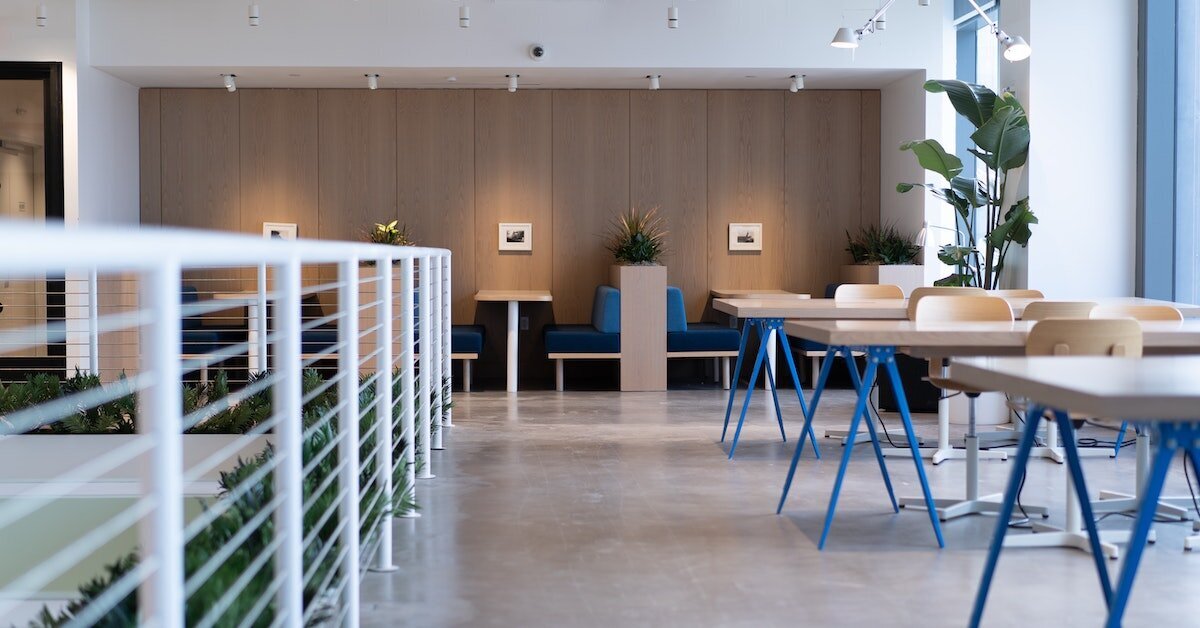
The Basics of Renting an Office Space
Determine Your Space Requirements
Before you rent office space, start by assessing your current team size and potential growth. Calculate the square footage needed per person, typically around 100 to 150 square feet. This includes individual workspace and shared areas like meeting rooms.
Consider the type of work your team does. Creative teams might need collaborative spaces, while tech firms might require quiet areas for focused work. Think about how your team’s needs might evolve over the next few years — factor in growth projections to avoid outgrowing your space too quickly.
Additionally, plan common areas for both collaboration and comfort. Include lounges, kitchens, and meeting rooms in your calculations. Balancing current needs with future expansion helps make sure your office space supports your business’s growth and productivity.
Research Included Amenities
Amenities can significantly impact productivity, employee satisfaction, and overall business operations. Some common amenities to look for when renting an office include:
- High-speed internet
- Fully furnished spaces
- Mail and package handling
- On-demand conference rooms
- Printing and scanning services
- Kitchen and break areas
- Reception services
- Security systems
- Parking facilities
- Access to day offices
- Onsite management
Compare Different Office Types
Understanding the differences helps you find a new office space that meets your unique needs:
- Office Suite: An office suite offers multiple rooms within a single unit, providing privacy and space for different departments. It's ideal for businesses needing separate meetings, workstations, and storage areas.
- Private Offices: A private office is an enclosed space designed for one or a few employees, with privacy and minimal distractions. Private offices are perfect for executives or small teams requiring a dedicated environment.
- Day Office: Day offices are fully equipped spaces rented by the hour or more, allowing for flexible, short-term use. They are good for remote workers or businesses needing occasional private office space.
- Dedicated Desk: A dedicated desk is a personal workstation in a shared office environment, reserved exclusively for you. It’s great for those who need a consistent workspace while still enjoying a collaborative setting.
- Hot Desk: A hot desk provides access to any available workstation within a shared office space, offering flexibility and cost savings. Ideal for freelancers and remote employees who don’t need a permanent desk.
- Virtual Office: A virtual office offers a professional business address and communication services without a physical workspace. It's a good choice for businesses wanting a prestigious address and administrative support without renting actual office space.
- Coworking: Coworking spaces provide shared office environments with communal areas, improving collaboration and networking. They are perfect for startups, freelancers, and small businesses looking for a dynamic and flexible workspace.
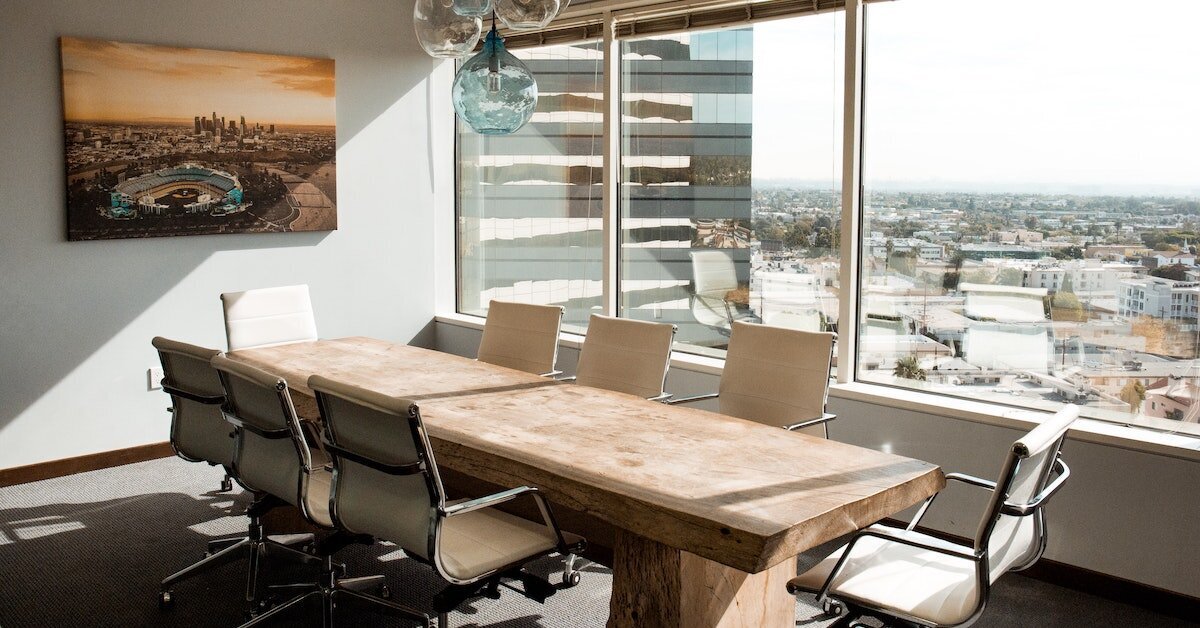
Select a Convenient Location
- Accessibility: Look for a location with good public transport links so employees and clients can easily reach the office.
- Amenities: Nearby restaurants, cafes, and banks add convenience to day-to-day operations. Having these facilities within walking distance can improve the overall work environment and employee well-being.
- Safety: A safe neighborhood reduces the risk of theft and provides peace of mind for employees and visitors. When looking for new office space, it's wise to research crime rates and security measures in the area.
- Reputation: Lastly, consider the area's reputation. A prestigious address can boost the company's image and credibility. It's beneficial for businesses wanting to impress clients and attract top talent.
Understand Lease Terms
Lease duration is a key criterion, typically ranging from one to ten years. Understanding the length and commitment required can help avoid future complications. Consult a commercial real estate broker to find office space that matches your business goals.
Renewal options are another important factor. Knowing if and how a lease can be renewed provides future security. It’s a good idea to negotiate favorable renewal terms upfront. This will help find office space that better meets long-term growth plans.
When planning your budget, consider rent increases. Many leases include annual rent escalations or adjustments based on market rates or CPI. Understanding these terms can avoid unpleasant surprises every year. Once again, a commercial real estate office broker can help explain these clauses.
Flexible terms, such as subleasing clauses or options to adjust space, offer adaptability. They allow businesses to scale operations without being locked into rigid agreements. Maintenance responsibilities should also be clearly outlined. Knowing who handles repairs and upkeep will help make sure your business runs smoothly once you've found the perfect office space.
Common office lease terms include:
- Lease duration
- Renewal options
- Rent increases
- Subleasing clauses
- Maintenance responsibilities
- Security deposit
- Tenant improvements
- Early termination clauses
- Parking terms
- Common area maintenance fees (CAM)
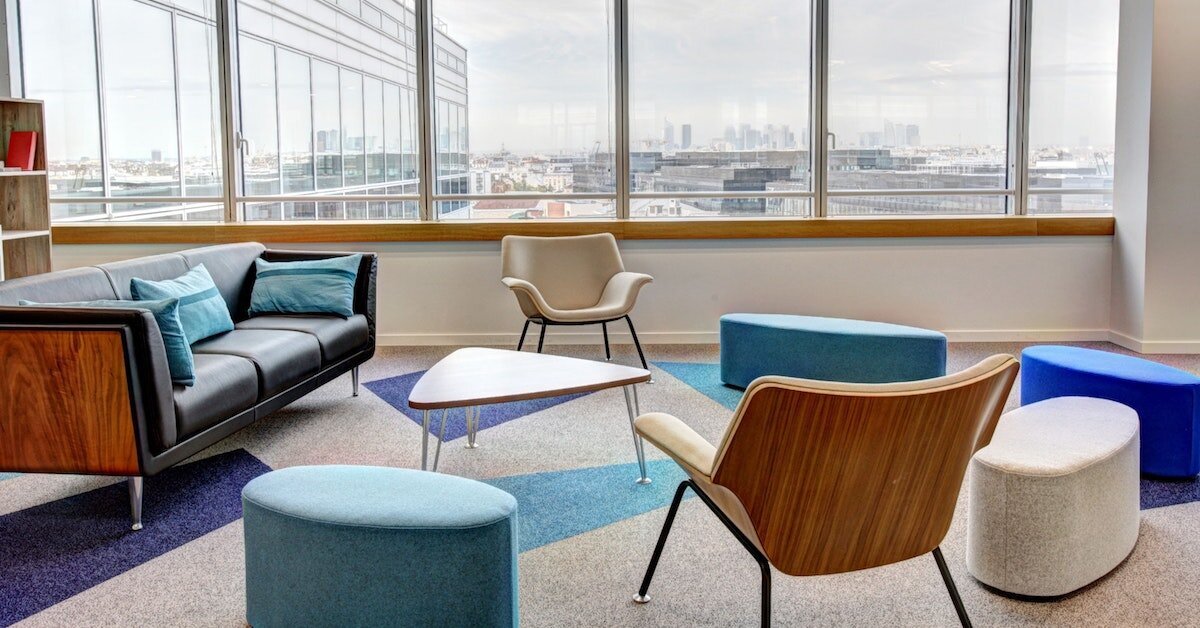
Plan Your Budget
Begin by determining your monthly rent limit. As a rule of thumb, allocate around 10% of your revenue to rent. Having a firm budget and sticking to it improves your business's financial stability and avoids overcommitting funds.
Utilities
With a gross lease, utilities and other expenses might be included, leading to higher rent but more straightforward budgeting. In contrast, a net lease separates these costs, requiring more detailed budgeting for electricity, water, internet, and phone services.
Maintenance
Maintenance expenses can include cleaning services, repairs, and common area maintenance (CAM) fees. Clarify who is responsible for these costs with your landlord. CAM charges can quickly add up and may also be subject to annual increases throughout the term of your office lease.
Tenant Improvements
Tenant Improvements (TIs) are another key factor. TIs are modifications made to fit your business needs. They can be funded by the landlord, tenant, or shared. Knowing the funding options helps you plan your budget effectively. For instance, landlord-funded TIs may result in higher rent but save upfront costs. Tenant-funded TIs allow more control over the design but require an up-front investment.

10 Tips for Renting an Office Space
Finding the perfect office space can be challenging for first-time renters. These tips will help you make a better decision when renting your first office space.
1. Assess Natural Light and Energy Efficiency
Natural light reduces energy costs and enhances employee well-being. Look for offices with large windows and energy-efficient features. This combination can lower utility expenses and boost productivity.
2. Verify HVAC Systems
A reliable HVAC system ensures comfort throughout the year and minimizes the risk of expensive repairs. Check the system's age, maintenance history, and efficiency by ordering an inspection before agreeing to the office lease.
3. Support Technological Needs
Modern businesses need strong tech infrastructure. Confirm the availability of power outlets, high-speed internet, and server rooms. Doing so beforehand avoids disruptive tech upgrades later on.
4. Investigate Noise Levels
Noise, such as traffic, construction, or neighbors, can be disruptive and affect productivity and focus. Visit the office at different times of day to assess ambient noise levels.
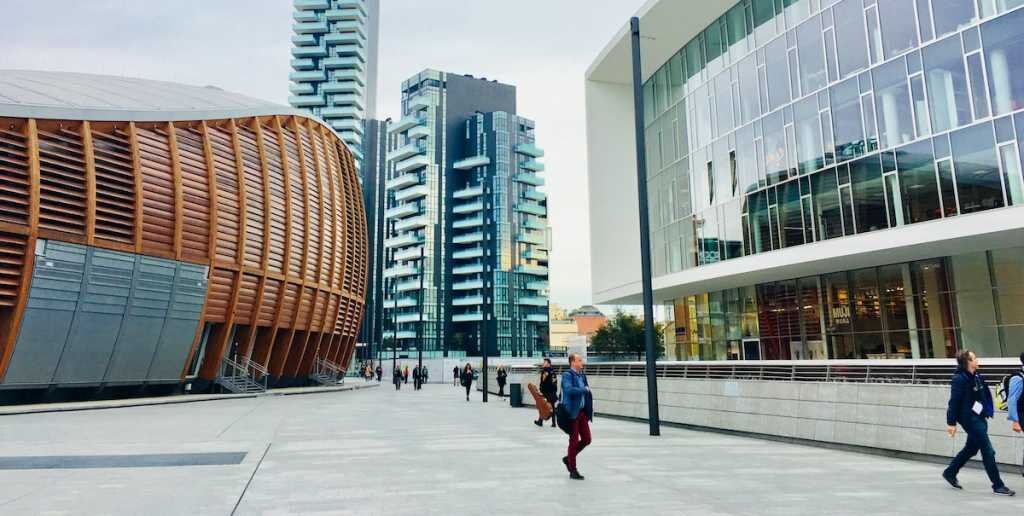
5. Signage and Branding Policy
Good signage improves your brand visibility. Ask about restrictions on indoor and outdoor signage. Understanding these policies helps you maximize branding opportunities while adhering to the terms of your office lease.
6. Workplace Wellness Initiatives
Look for office spaces with fitness centers or wellness rooms. These amenities support a healthier work environment and reduce absenteeism.
7. Customization Process
Customizing your office space boosts functionality. Discuss modification options and costs with the landlord or leasing agent. Flexibility in design allows you to tailor the space to your business needs.
8. Construction Impact
Research any planned projects and their schedules. Awareness of upcoming construction helps you avoid unexpected disturbances for your employees and visitors.
9. Understand Parking Options
Assess parking options available for rent outside of the building or onsite and determine if there are designated spots for visitors. For office space, look for a parking ratio of about 3 spaces for every 1,000 square feet.
10. Flexibility for Growth
Your office space should adapt to your business growth. Make sure your office lease allows for expansion or reduction. Doing so helps prevent the expense of having to relocate frequently.
